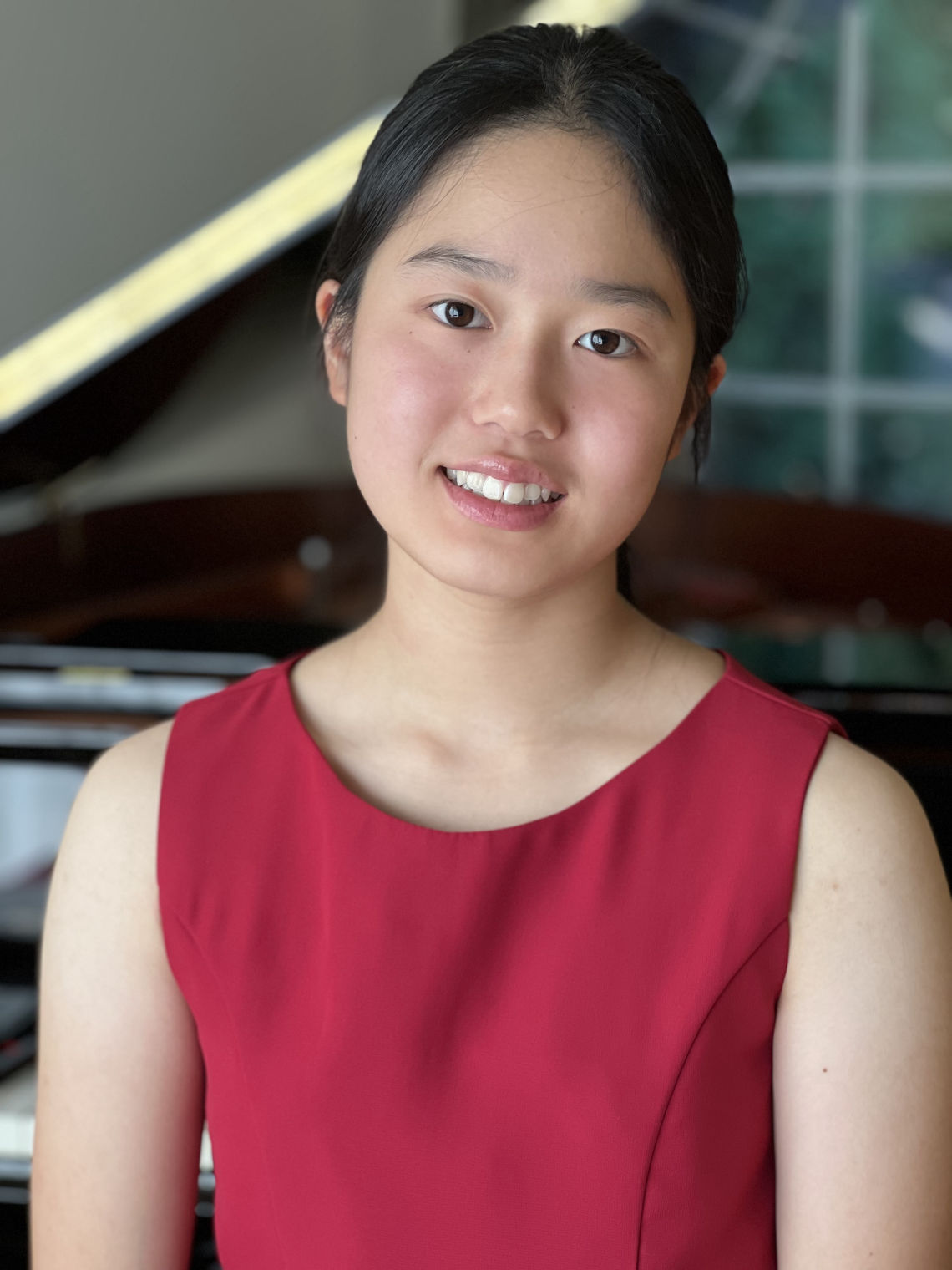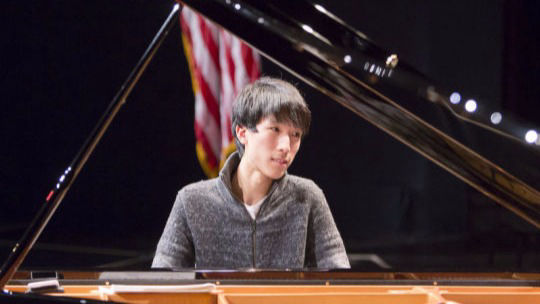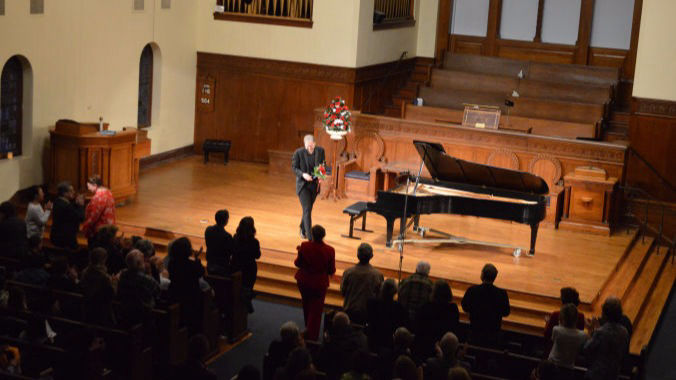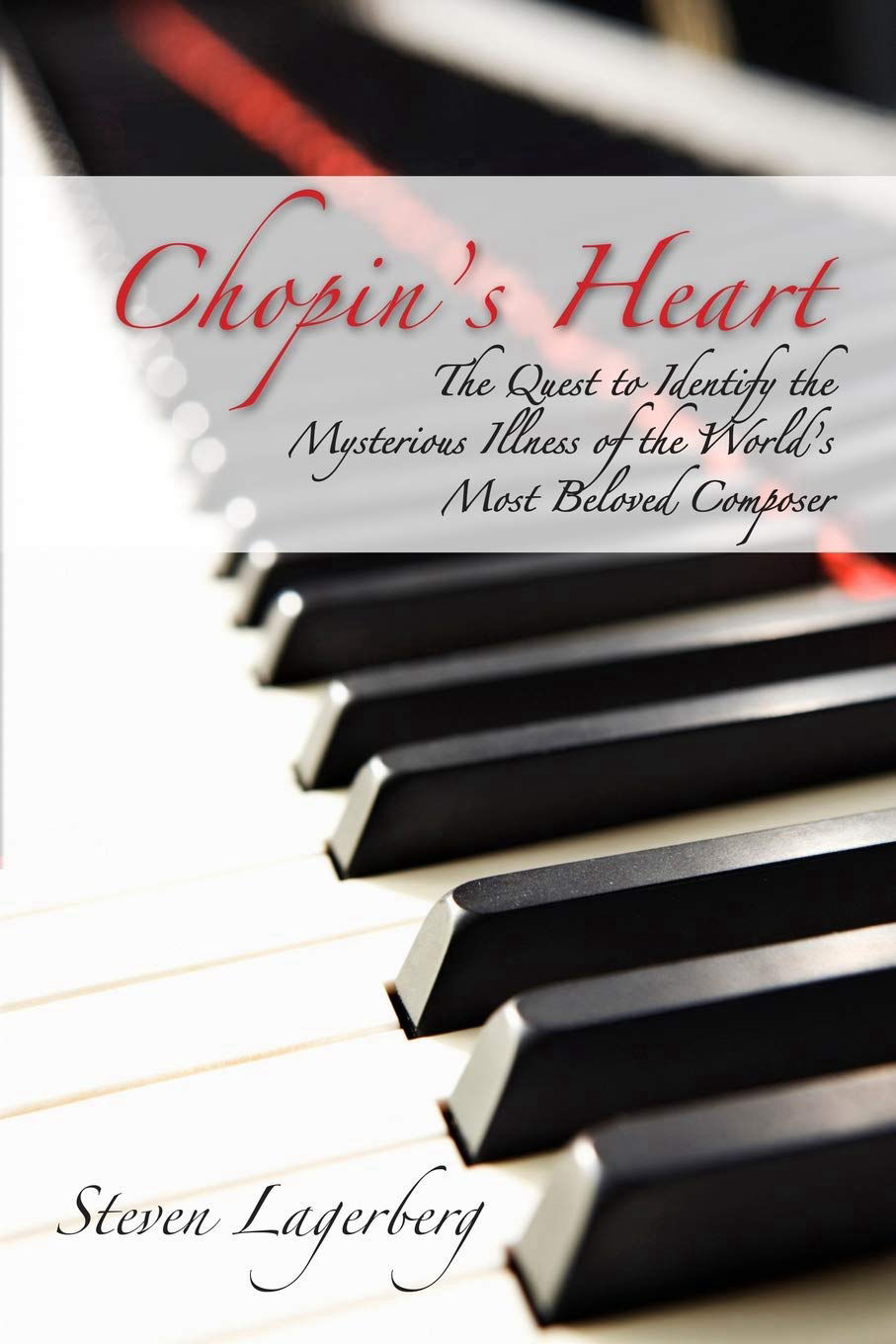Congratulations to all the pianists who participated at the 2025 Chopin NW Festival, as well as their parents and teachers. Grand Prix Gold Winners in the solo divisions are Helen Belvin Scholarship Prize recipients.
6 YEAR OLD DIVISION: Adjudicator: Dr. Theresa Bogard
GOLD: Charlotte Wu (Teacher: Ni Liu)
SILVER: Rose Huang (Teacher: Ni Liu)
SILVER: Shuwei Zhang (Teacher: Sasha Starcevich)
BRONZE: Aiden Yang (Teacher: Allan Park)
7 YEAR OLD DIVISION: Adjudicator: Dr. Ernest Barretta
GOLD: Erica Xu (Teacher: Yanan Li)
GOLD: Juno Wang (Teacher: Adam Aleksander)
SILVER: Ava He (Teacher: Adam Aleksander)
SILVER: Elena Nien (Teacher: Hanna Cyba)
SILVER: Jeffrey Lou (Teacher: Adam Aleksander)
SILVER: Jinluo Pei (Teacher: Hong Liu)
SILVER: Kate Yuen (Teacher: Adam Aleksander)
SILVER: Simone Chai (Teacher: Allan Park)
SILVER: Sofia Yu (Teacher: Hanna Cyba)
BRONZE: Claire Yuen (Teacher: Adam Aleksander)
BRONZE: Ivy Yu (Teacher: Hong Liu)
8 YEAR OLD DIVISION Adjudicator: Dr. Theresa Bogard
GRAND PRIX GOLD: Athena Li (Teachers: Tracy Xu/Peter Mack)
GOLD: Daniel Wang (Teacher: Hanna Cyba)
GOLD: Ellie Zhang (Teacher: Sasha Starcevich)
SILVER: Celine Cheng (Teacher: Maria Khavin)
SILVER: Chloe Zhang (Teacher: Grace Huang)
SILVER: Orson Lin (Teacher: Hanna Cyba)
SILVER: Selina Shen (Teacher: Adam Aleksander)
BRONZE: Ella Song (Teacher: Yanan Li)
BRONZE: Eric Liang (Teacher: Maria Khavin)
BRONZE: Jason Fang (Teacher: Sisi Ye)
BRONZE: Mia Xu (Teacher: Yanan Li)
9 YEAR OLD DIVISION Adjudicator: Dr. Elizabeth Schumann
GOLD: Annabelle Wang (Teacher: Tatiana Lanford)
GOLD: Harper Li (Teacher: Ekaterina Melkamini)
SILVER: Daniel Zhao (Teacher: Tatiana Lanford)
SILVER: Yunlei Wang (Teacher: Xing Jin)
BRONZE: Caroline Zhang (Teacher: Maria Maltseva)
BRONZE: Rebecca Li (Teacher: Grace Huang)
10 YEAR OLD DIVISION Adjudicator: Dr. Grace Liu
GRAND PRIX GOLD: Chloe Nari Wang (Teacher: Adam Aleksander)
GRAND PRIX GOLD: Crystal Jiao (Teacher: Hanna Cyba)
GOLD: Felix Zhang (Teacher: Sasha Starcevich)
SILVER: Aiden Dong (Teacher: Alexandra Tsirkel)
SILVER: Aimee He (Teacher: Alexandra Tsirkel)
SILVER: Brian Liang (Teacher: Tatiana Lanford)
SILVER: Evan Wang (Teacher: Peter Mack)
SILVER: Kaidi Jin (Teacher: Hong Liu)
BRONZE: Kaichen Jin (Teacher: Hong Liu)
BRONZE: Kyle Tan (Teacher: Emily Cho)
BRONZE: Liam Sun (Teacher: Renata Shumskaya)
BRONZE: Raymond Zhou (Teacher: Tatiana Sharapova)
BRONZE: Stefan Zhou (Teacher: Sasha Starcevich)
BRONZE: Steven Li (Teacher: Tatiana Lanford)
11 YEAR OLD DIVISION: Adjudicator: Dr. Ernest Barretta
GRAND PRIX GOLD: Alexander Wang (Teacher: Tatiana Lanford)
GRAND PRIX GOLD: Alvin Lee (Teacher: Allan Park)
GOLD: Daniel Luan (Teacher: Peter Mack)
GOLD: Ru-Shan An (Teacher: Hanna Cyba)
SILVER: Ethan Xu (Teacher: Hanna Cyba)
SILVER: Nicole Wang (Teacher: Peter Mack)
SILVER: Rei Yamazono (Teacher: Nino Merabishvili)
SILVER: Siwon Park (Teacher: Nino Merabishvili)
SILVER: Yilan Jin (Teacher: Nancy Jang)
BRONZE: Alice Xiong (Teacher: Tatiana Lanford)
BRONZE: Emily Lu (Teacher: Adam Aleksander)
BRONZE: Lawrence Kim (Teacher: Sasha Starcevich)
BRONZE: Lilian Flowers (Teacher: Allan Park)
12 YEAR OLD DIVISION Adjudicator: Dr. Theresa Bogard
GOLD: Arthur Zhang (Teacher: Nino Merabishvili)
GOLD: Cara Fan (Teacher: Nino Merabishvili)
GOLD: Lucas Popescu (Teacher: Allan Park)
SILVER: Caiden Kim (Teacher: Allan Park)
SILVER: Caleb Wie (Teacher: Allan Park)
SILVER: Ivy Zheng (Teacher: Adam Aleksander)
BRONZE: Claire Kang (Teacher: Allan Park)
BRONZE: Grace Kaiboriboon (Teacher: Maria Maltseva)
BRONZE: Joyce Wang (Teacher: Adam Aleksander)
BRONZE: Kevin Ji (Teacher: Ke Lao)
BRONZE: Sydney Cui (Teacher: Adam Aleksander)
BRONZE: Yuyang Liu (Teacher: Sasha Starcevich)
13 YEAR OLD DIVISION Adjudicator: Dr. Elizabeth Schumann
GRAND PRIX GOLD: Zhuoxi (Daniel) Liu (Teacher: Adam Aleksander)
GOLD: Ethan Kyte (Teacher: Nino Merabishvili)
GOLD: Jane Kwon (Teacher: Allan Park)
SILVER: Aaron Hsiao (Teacher: Nancy Jang)
SILVER: Brandon Li (Teacher: Ekaterina Melkamini)
SILVER: Charity Yang (Teacher: Tien Yin Chen)
SILVER: Junhao Fang (Teacher: Allan Park)
SILVER: Katelyn Denq (Teacher: Renata Shumskaya)
SILVER: Paolo Moreni (Teacher: Joan Schoepflin)
BRONZE: Aaron Jin (Teacher: Randall Jackson)
BRONZE: Alexander Xie (Teacher: Oksana Ejokina)
BRONZE: David Zhang (Teacher: Adam Aleksander)
14 YEAR OLD DIVISION: Adjudicator: Dr. Ernest Barretta
GRAND PRIX GOLD: Connor Wang (Teacher: Tatiana Sharapova)
SILVER: Eli Antony (Teacher: Robin McCabe)
BRONZE: Audrey Cui (Teacher: Adam Aleksander)
BRONZE: Jonathan Yang (Teacher: Adam Aleksander)
15 YEAR OLD DIVISION Adjudicator: Dr. Grace Liu
GRAND PRIX GOLD: Alexander Vollmer (Teacher: Allan Park)
GOLD: Isabel Yang (Teacher: Allan Park)
SILVER: Emily Qi (Teacher: Peter Mack)
SILVER: Hannah Kwon (Teacher: Allan Park)
BRONZE: Albert Zhang (Teacher: Adam Aleksander)
BRONZE: Keshav Mohan (Teacher: Chen Liang)
BRONZE: Princeton Kang (Teacher: Nancy Jang)
16 YEAR OLD DIVISION Adjudicator: Dr. Theresa Bogard
GRAND PRIX GOLD: Taiyo Oishi (Teacher: Oksana Ejokina)
GOLD: Angelina Mitrianu (Teacher: Ekaterina Melkamini)
SILVER: Allison Lin (Teacher: Yelena Balabanova)
SILVER: Haowen Zhang (Teacher: Grace Huang)
SILVER: Jian Zhou Chen (Teacher: Alexandra Tsirkel)
17-18 YEAR OLD DIVISION Adjudicator: Dr. Elizabeth Schumann
GOLD: Jerry Chang (Teacher: Sasha Starcevich)
GOLD: Michelle Cao (Teacher: Sasha Starcevich)
SILVER: Haifeng Lin (Teacher: Tatiana Lanford)
SILVER: William Wang (Teacher: Peter Mack)
BRONZE: Courtney Tam (Teacher: Yelena Balabanova)
BRONZE: Yuanrui Zhao (Teacher: Tatiana Lanford)
19 ADULT AMATEUR DIVISION Adjudicator: Dr. Theresa Bogard
SILVER: Godwin Hong (Teacher: Allan Park)
CONCERTO DIVISION
GRAND PRIX GOLD: Joyce Ye (Teacher: Yelena Balabanova)
GOLD (Alternate): Arabelle Grote (Teachers: Ni Liu/Peter Mack)
SILVER: Alexander Vollmer (Teacher: Allan Park)
SILVER: William Feng (Teacher: Christopher Bowlby)
BRONZE: Eugene Li (Teacher: John Lee)




